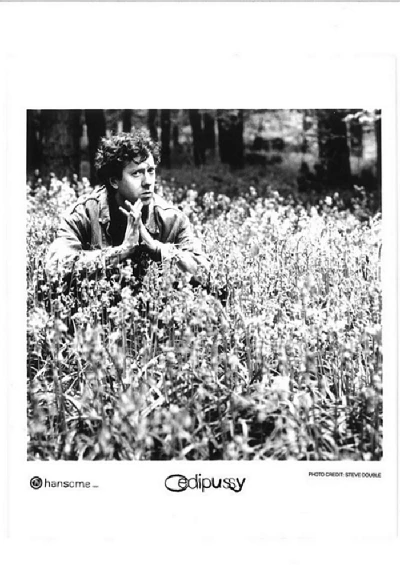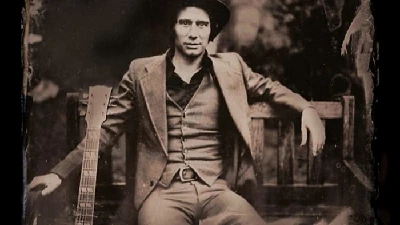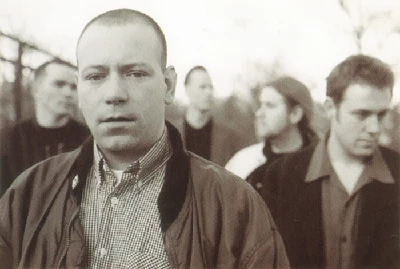published: 8 /
11 /
2019

Denzil Watson provides the third and final part and the top three albums in his popular 'Ten Great Lost Indie Albums' series.
Article
So here it is. The third and final part of the 'Ten Great Lost Indie Albums' series. It's been fun doing this as it's given me an excuse to revisit these ten gems. Hopefully you have concurred with me on one or maybe more of these lost treasures. Maybe it's jolted your memory of an album you already knew but now have rediscovered. Or maybe, better still, it's helped you to discover a new group and/or album you never even knew existed prior to this triple-beamed searchlight into the deepest corners of the independent music ocean. So without any more hesitation, in reverse order, here are extended appraisals of my top three lost albums.
Number 3. Patrick Duff - The Mad Straight Road (No label - Self-released, 2010)
Patrick Duff should be no stranger to indie music fans. The charismatic, but enigmatic and troubled frontman, came to prominence with Bristol's Strangelove back in the 1990s. While lumped in with the Britpop movement there was always something far more dark, brooding and fascinating about them compared to their peers. After splitting up in 1998 after three albums (including the stunning 'Love and Other Demons') and a number of acclaimed EPs, they went their separate ways.
Duff briefly played with new band Moon, before travelling the globe and immersing himself in world music. After his debut solo album 'Luxury Problems' in 2005 on EMI’s Harvest label, he quite literally disappeared off the map. I remember doing a phone interview with Patrick back in 2011 shortly after the release of 'The Mad Straight Road'. It was an interview I'll never forget. It started off with an incredibly guarded Duff reticent to discuss the present, let alone the past. However, he gradually opened up and it went on to be one of the most honest and memorable interviews I can ever recall doing.
By Patrick's own admission 'The Mad Straight Road' was a hard album to make as he ran out of money, relying on people to do things as favours. With no label behind him, he had to then release it on his own, which only served to make the LP an even greater achievement.
The album itself is a joy. Expertly produced by Massive Attack collaborator Stew Jackson, it has a kind of vaudeville/lived-in country vibe to it, along with the dark, intriguing pop sensibilities of his former band Strangelove. A number of tracks featured the tuba, giving them a wonderful oom-pah feel. This is no more effectively felt than on the swirlingly glorious tale of 'Poor Old John'.
Equally, the use of a theremin on 'Dead Man Singing' gives the track a haunting air. Meanwhile, the jazzy shuffle of 'Three Little Monkeys' takes things to a more upbeat place and could quite easily have featured on a soundtrack of a Disney movie. The tale of 'Dora Brown', featuring local Bristol singer Emily Breeze, has its foot firmly in the country and western camp.
Throughout the album Patrick's voice sounds fantastic and he announced himself as an established solo artist.
Key tracks: 'Dead Man Singing'; 'Poor Old John'; 'Three Little Monkeys'.
Availability: Download via iTunes/other sites. Self-released on CD. Second-hand copies frequently turn up on E-bay/Amazon.
Number 2. Sack - The Butterfly Effect (DiRT Records - Dirty13, 1997)
Sack are a Dublin-based five-piece indie outfit. Described as "The Pixies fronted by Frank Sinatra", the band was formed around the nucleus of lead singer Martin McCann and the Brereton brothers, John on drums and Tony on guitar. Debut album 'You Are What You Eat' caused a few ripples this side of the Irish Sea in 1994, with accompanying single 'What did the Christians do for us' landing Single of the Week in the NME. It was around this time that I first came across the band in the Leadmill Bar in Sheffield, having just supported The Fall. I remember them still buzzing about the fact they were over in the UK and supporting one of their long-time heroes, Mark E Smith. If truth be told Sack were by far the better band that night, and MES was somewhat worse for wear well before he performed.
However, it was a few years later on their second LP, 1997's 'The Butterfly Effect', where the band really hit their stride. The fourteen-track LP delivered a master class in melodic buzz-pop, the rough edges smoothed off without any loss of the band's urgency. Few albums can boast such an opening trio of tracks. The chiming guitar rush of opener 'Climb Mine Powerhouse" more than lives up to its name with its sadness tinged lyric of "Your field of dreams isn't there anymore". The more up-beat 'Latitude', with its spiralling guitars and bouncing bassline, further ups the ante.
But it's the beautifully mournful 'Laughter Lines' that steals the show. There's a story behind this song too. One evening after the album's release the band were playing a local headline show in Whelan's, one of Dublin's best-known live music venues, and who should pop in but one Stephen Patrick Morrissey. So impressed by the band was he that he came backstage to their dressing-room to complement them on their show. He subsequently took them on two of his world tours. But despite finding themselves labelled as Morrissey's favourite new band (more of a badge of indie honour back then) they still remained relatively unknown outside of their native Ireland.
Anyhow, back to the album itself. It's hard to find a duff track as indie hit follows indie hit, a bit like The Undertones' debut album. Other highlights include the dirty stop-out tales of 'Sleeping On The Floor', the Pixies-like quiet, loud, quiet, loud approach of 'Latter Day Saint' and the sheer beauty of album closer 'A Sunny Day'. From start to finish this album really does deserve its Number 2 spot. Despite the release of a further mini-album, 'Adventura Majestica', things began to peter out, leaving 'The Butterfly Effect' as this little-known band's artistic peak.
Key tracks: 'Laughter Lines'; 'Latitude'; 'A Sunny Day'.
Availability: Download via iTunes/other sites. CD now deleted but second-hand copies frequently turn up on E-bay/Amazon.
Number 1. Oedipussy - Divan (Hansome - Hanlp1, 1994)
And so on to the album occupying the coveted Number 1 slot. It's...Oedipussy, the solo project of the dry-witted singer/guitarist Phil Parfitt of 80s indie faves, The Perfect Disaster. Their darkly brooding guitar pastiches, dealing with issues such as suicide and alienation, garnered much coverage in the music press back in the day, along with numerous comparisons with The Velvet Underground.
After The Perfect Disaster unravelled, Parfitt reappeared four years later with Oedipussy and 'Divan'; a slick record that soared, purred and throbbed with lush rhythms and sexy grooves, boasting distinguished helpers including ex-House of Love man Terry Bickers and fellow Fire Records stablemate Jason 'Spiritualised' Pierce. Technologically it was a step forward too, with hypnotic drum loops and samples used to good effect. It was a quantum leap from the Perfect Disaster's disappointing final LP, 'Heaven Scent'. It is, dare I say it, a flawless album that fully deserves the top slot in this list and one that features in my Top 10 albums of all time.
On to the album itself: opening track 'Lady Purple' begins proceedings with a gorgeous vortex of wah-wah guitars. The mantra-like 'Free' was the first single to be lifted from 'Divan', with its grinding guitars, American Evangelical preacher samples and Parfitt's trademark Lou Reed sub-bass drawl. The dreamy and lilting 'My Soul' features violin and the ethereal backing vocals of Carole McMurry and has an almost ecclesiastical quality as it slows things down. The warm throb of 'Too Late', which must have also been a candidate for a single, appears autobiographical in parts as Parfitt admits to himself that he might have missed the boat in terms of musical success. 'I Want You', with its Catherine wheel guitars, broods and unfolds into a rich Eastern-influenced tapestry of sound. 'Do It Right', the second single from the album with its chorus line "I want to give you all my love", is the dirty, sexed-up big sister of 'Free', its suggestive lyrics grinding on and on while not leaving too much to the imagination. Final track, 'I Heard An Angel Call My Name', is the perfect ending and probably one of the most beautiful songs you will ever hear. Gentle seascapes lap at your ears before everything takes off in dramatic fashion and the song spirals up into the clouds and beyond into Heaven.
So Parfitt finally made the record he'd been threatening to make for some years. The sad thing is that it was heard by so few people. Only a handful of live dates were played in support of the album's release and a follow-up was never completed. Parfitt subsequently disappeared, never to be heard of again. That was until, out of the blue, a comment appeared at the bottom of a previous article I wrote for Pennyblackmusic extolling the virtues of 'Divan': "Thank you, that is a very decent, considerate review - well-written, researched and executed. Good Luck. Phil Parfitt". We subsequently struck up a friendship that I still very much treasure today and Parfitt went on to release another solo album, the gentle 'I'm Not The Man I Used To Be' in 2014.
Key tracks: 'Free'; 'Too Late'; 'Do It Right'.
Availability: Unavailable digitally. Second-hand copies turn up for around the £10 mark on a fairly regular basis.
Play in YouTube:-
Picture Gallery:-

